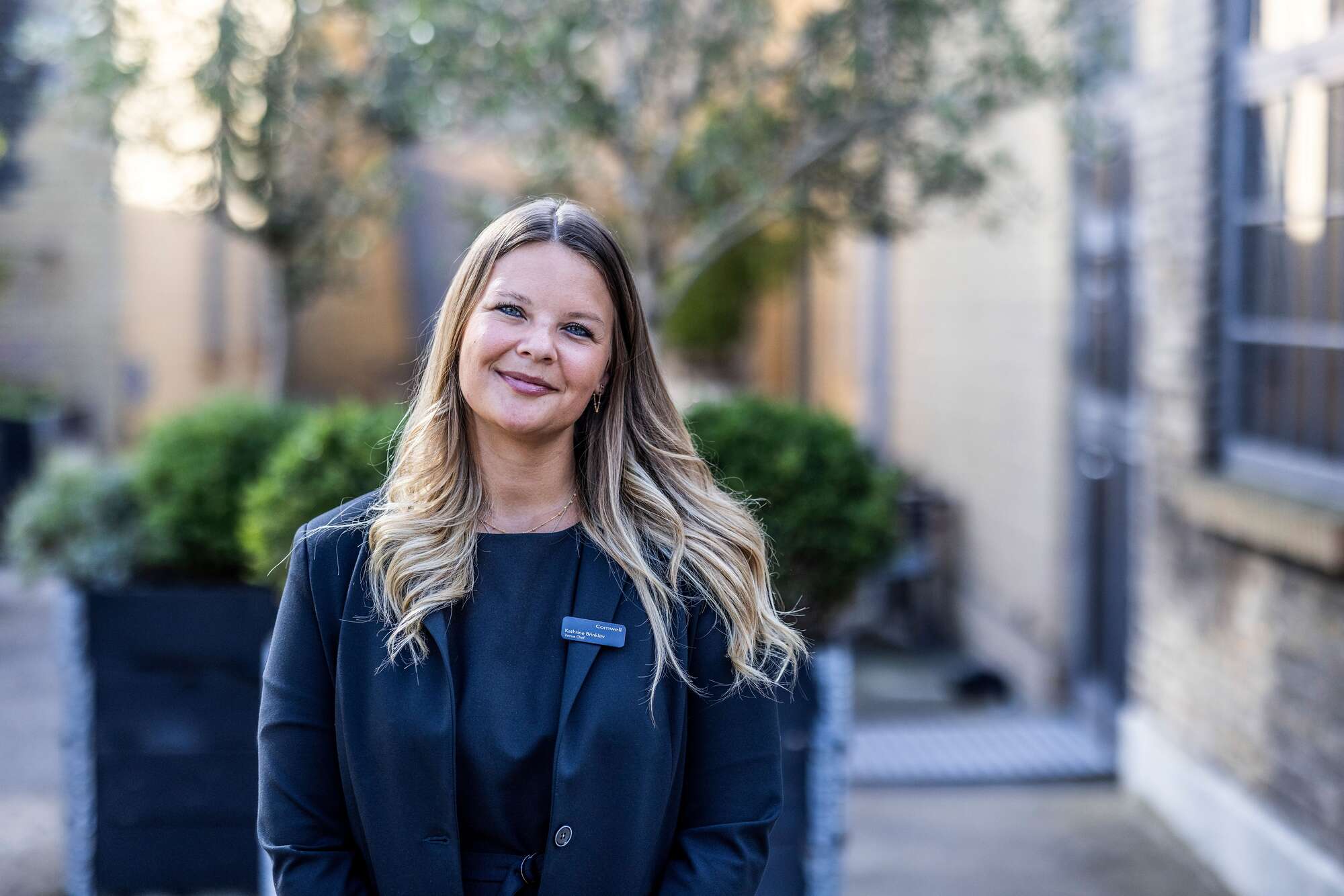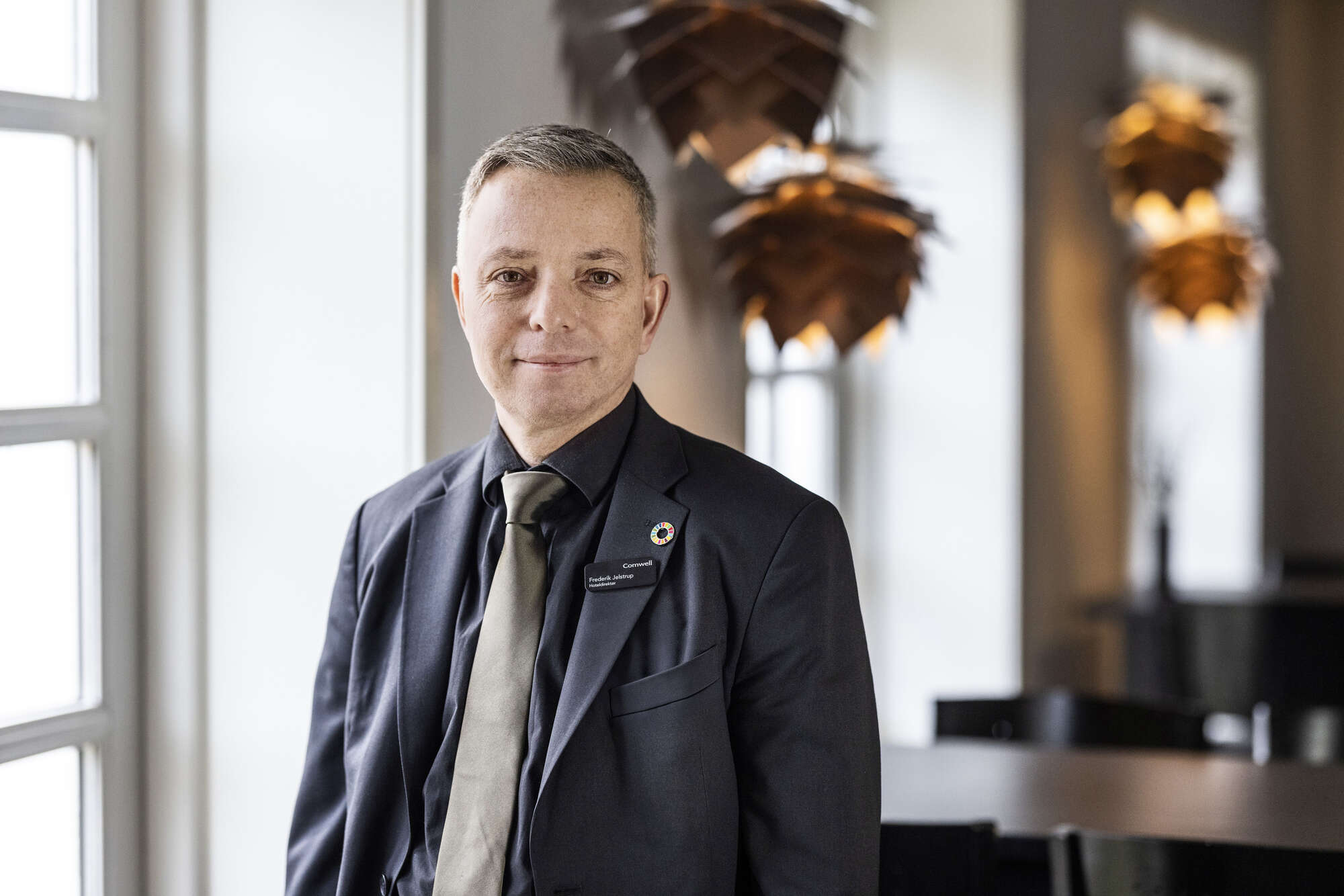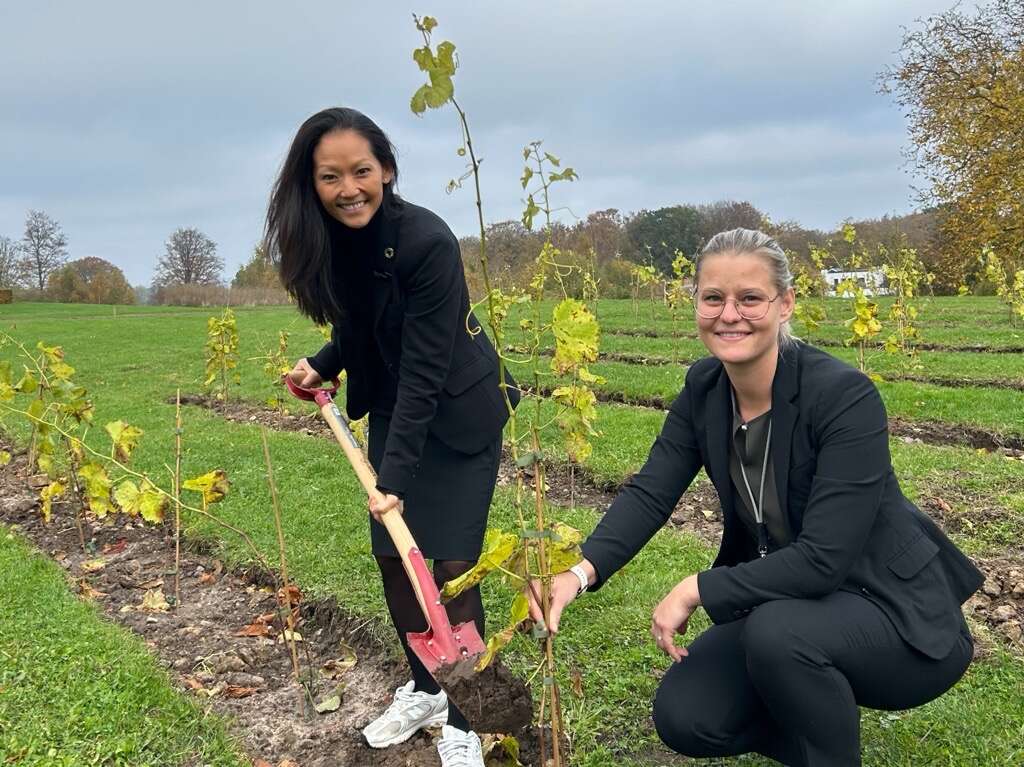Creative thinking and a shared understanding that everyone must work towards the same goal are some of the key ingredients in Comwell's ongoing efforts to reduce food waste in the kitchens of Comwell hotels and venues around the country. And this is no exception at the chain's popular city hotel Comwell Copenhagen Portside. Here, the right workflows and strong teamwork skills play a crucial role in the fight against food waste - even when challenges arise in relation to specific workflows, guest needs and legislation.
The cold room has frozen, day-old rye bread waiting to be reused for the breakfast buffet's rye bread muesli. Leftover broccoli florets are waiting to be revitalised in the pies in the lunch buffet. Coffee grounds are used as a flavouring in the rum balls, but are also a breeding ground for the home-grown mushrooms in the kitchen's ‘mushroom cabinet’. And the leftovers from the morning's scrambled eggs will be used to complement the smoked mackerel for lunch.
Any leftovers are given new life in the kitchen at Comwell Copenhagen Portside. Thinking creatively is a big part of the everyday work to combat food waste and work towards Comwell's overall goal of reducing the hotel's total carbon footprint and achieving carbon neutrality in its own operations by 2030 and in the entire value chain by 2040.
And while there is an overall goal to strive for, the employees in the kitchen simply can't help themselves, says Head Chef at the hotel in Nordhavn, Niclas Grove: ‘One of our major focus areas in our daily work is to constantly optimise and develop the ways in which we can incorporate more sustainability and less food waste into our operations. And fortunately, thinking about optimal utilisation of all raw materials is a natural part of the way we work,’ says Niclas.
Reducing food waste is an area that Comwell Hotels has focused on for many years. Food waste measurements are taken every day, and Comwell has set a goal of having a maximum of 15% food waste, including food waste, by 2030.
Small portions - big differences
All kitchens at Comwell work with several food waste initiatives that are continuously followed up on. For example, there are reduction targets for food waste, employees are trained in Comwell's own Green Chef programme, there is a focus on seasonal ingredients, internal competitions are run among employees, and Comwell has moved away from serving on large platters, instead serving in small plates and bowls at the buffet. And not least, any surplus food is registered and monitored.
And if you ask the head chef which initiatives reduce food waste the most in practice, he quickly points to the small portioned dishes in the hotel's lunch buffet: ‘Since we switched to small portioned dishes, we can really feel that our food waste has been significantly reduced. Instead of having one big platter for all guests to take from, we now have small portions that each guest takes on their plate,’ he says and elaborates: ’This way we avoid wasting almost an entire platter of food in one go, for example.’
Rubbish bins are weighed and reported
Niclas Grove explains that the leftovers from the guests' plates are of course not recycled. He then leads the way to the three different bins in the large hotel kitchen, which they work with to divide and make it possible to measure the waste accurately.
There is a bucket for leftover plates, a bucket for what cannot be used in production - for example, the green stem of a strawberry - and a bucket for leftovers from serving. The bins are placed on separate scales that log the times and quantities when staff empty them.
‘Weighing how much food is thrown away enables us to constantly follow up and document our consumption. There must be a correlation between the amount of waste and the number of diners, and if there isn't, we look at what we can improve,’ he says.
There are many things the staff can and do already, and although Niclas Grove explains that there is always room for improvement, there is one unavoidable challenge. Namely, figuring out what guests prefer to eat. Often we get it right, but not always.
On a journey together - also with guests
In production, they try to do what they can to minimise food waste. But they also use several tools to help and influence guests to be part of Comwell's sustainability journey: ‘For example, at the buffet we can put up small signs telling how much food waste we had the day before and ask guests to help us become even better. We are on a constant sustainability journey, and it's necessary that guests also want to join us on this journey,’ says Portside's head chef.
Every day is also a team effort within the kitchen to make the creative ideas work in practice. Internal communication in the different kitchen teams is therefore crucial to ensure that all raw materials and leftovers circulate around the kitchen and are given new life: ‘My leftovers are my colleagues’ gold. And vice versa. The fact that we talk to each other from team to team about what we each have in surplus and spar with each other about how we can use each leftover to devise new dishes or integrate it into something existing means that we always know what each of us is working with and what we have left over,’ Niclas concludes.












